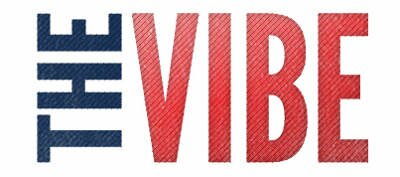The Best of the Web
This week’s round-up of what you might have missed includes articles on football in America, Google’s new social network and the prospects for Dominique Strass-Kahn.
Welcome to another set of weekly web highlights, starting with the top ten articles you might have missed.
1. In the National Interest, an attempt to understand the burgeoning global rivalry between the US and China:
Throughout history, relations between dominant and rising states have been uneasy—and often violent. Indeed, this story line, with its Shakespearean overtones of youth and age, vigor and decline, is among the oldest in recorded history.
2. In the Guardian, John Pilger reports on how Australian authorities are facing up to the scarred history of relations with Aboriginal peoples:
The Aboriginal people are both Australia’s secret and this otherwise derivative society’s most amazing distinction.
3. With the accusations of rape against for IMF chief Dominique Strauss-Kahn seemingly unravelling, Gideon Rachman in the FT asks whether the stage is set for a remarkable political comeback:
If this were a novel or a TV mini-series, the next step would clearly be for him to return to France, a vindicated man, and to be swept to the presidency. However, reality is likely to be a bit more complicated.
4. On Foreign Policy, news of China’s latest ‘panda census’:
Before you get so jealous of these panda trackers’ jobs that you quit your own, know that much of panda tracking actually involves collecting panda droppings for DNA analysis.
5. A first-hand account of how football – ‘soccer’ – is starting to gain mainstream popularity in America:
You go to a game and you can finally be comfortable being an American.
6. From the New Scientist, an explanation of what Google’s newly launched ‘+1′ service offers, particularly in comparison to Facebook:
Where Google+ differs is philosophy: while Facebook wants you to share everything with everyone, Google+ recognises that the labels we put on our social relationships are often more complicated than a simple “friend”.
7. HiLoBrow has a commemoration of the life of Alan Turing, a genius code-breaker condemned in his own time for his homosexuality:
In the end, the father of the information age turned out to be human, all too human.
8. For the Economist‘s Intelligent Life, Salman Rushdie lists chooses the places and structures that mean the most to him:
Modern thinking says that the constant reproduction of an image devalues the orginal. But with the Taj Mahal, the original exceeds all the reproductions.
9. U.S. Supreme Court Justice Stephen Breyer chooses five influential books:
When you are representing human beings or deciding things that affect them, you need to understand, as best you can, the workings of human life.
10. On the Gulliver blog, a fly-over view of the wildlife of South Sudan, soon to become the world’s newest country:
I have two goals this morning: to be one of the few people ever to see the second-largest animal migration in the world and not to puke up the “prosciutto” pizza I had for dinner last night.
Chart of the week: from Flowing Data, a bar graph showing the most common iPhone passwords, mostly fairly predictable.
Podcast of the week: NPR’s Planet Money reported on a libertarian festival in America, where you can buy a bacon sandwich for a shred of silver.
Photos of the week: an Atlantic photo essay on Afghanistan, almost ten years on from the US-led invasion.

